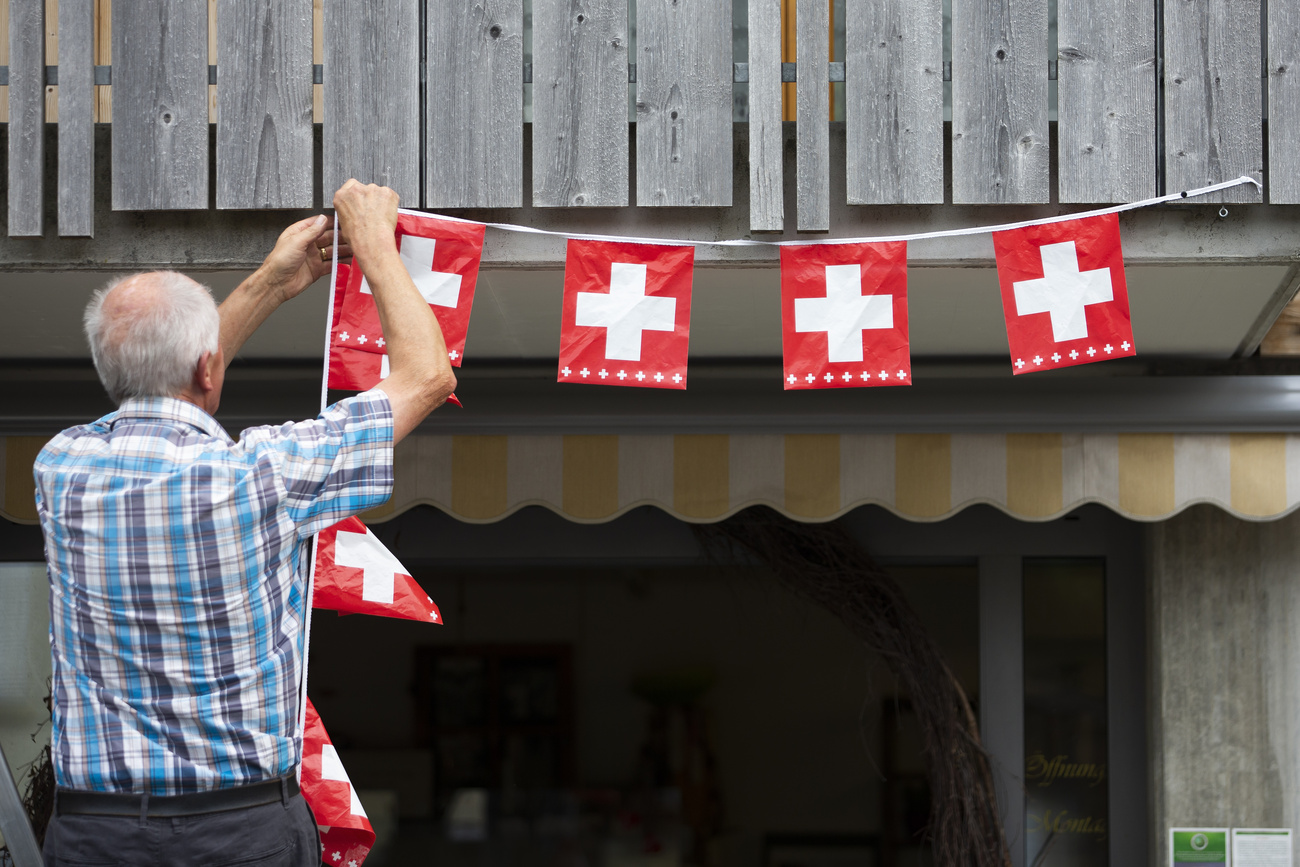
Nuclear safety ruling divides opinion

Nuclear power plants have been ordered to step up safety, prompting division among political parties and the media over where that leaves atomic power in Switzerland.
The Swiss Federal Nuclear Safety Inspectorate has given Switzerland’s five plants until August 31 to present measures for necessary improvements after a report found potential problems in all plants.
The security checks follow nuclear breakdowns at Japan’s Fukushima plant that was damaged in an earthquake and tsunami in March.
At two Swiss plants in particular, Mühleberg in canton Bern and Beznau in canton Argau, the emergency cooling water systems were “insufficiently protected against earthquakes and floods”, the report found.
They must remedy the situation within four months and by next March must also demonstrate that they can cope with both an earthquake and – like in Japan – an earthquake combined with the rupture of nearby dam walls.
Nuclear plants in Leibstadt in canton Aargau and Gösgen in canton Solothurn were also sanctioned by the inspectorate because cooling system temperature indicators do not appear in the command post in the event of an emergency.
Reactions in the Swiss press to Wednesday’s ruling were mixed.
For the tabloid Blick, it showed that “Mühleberg is as dangerous as Fukushima!”. Despite these serious safety shortcomings the power station is allowed to continue operating, it said.
Although all five plants received an unsatisfactory report, inspectorate director Hans Wanner said there was no immediate risk to the population.
“But political pressure is mounting,” warns the Blick, quoting the Social Democrats energy politician Eric Nussbaumer as saying the inspectorate correctly recognised plants’ shortcomings “but drew the wrong conclusions”.
Mühleberg unviable?
As expected, there was criticism from Greenpeace. The organisation said the measures proposed showed that if a Fukushima-style incident were to happen in Switzerland, existing plants would not be able to meet optimum safety levels. Reading between the lines, this gives the green light for new stations to be built, it said.
Greenpeace and the Green Party called for the older plants at Mühleberg and Beznau to be shut down immediately. The Social Democrats also backed closing down Mühleberg based on the report.
The Bern-based Der Bund also reports that Mühleberg could become unviable as the nuclear inspectorate is demanding additional investment to ensure safety.
“For the operators [of Mühleberg] BKW, the question is whether the required measures are affordable. The costs, as soon as they have been calculated, will be weighed up against the expected remaining lifespan of the power station (2020),” it quoted BKW spokesman Antonio Sommavilla as saying.
“And BKW president Urs Gasche is not ruling out ‘that on economic grounds we may have to withhold the investment’. Should the concern refuse to make the investment, the Inspectorate would require Mühleberg to be closed on security grounds.”
Beznau’s operator Axpo said it would make the changes within the deadline set by the inspectorate, adding that it had always met safety requirements in the past. The Gösgen station said it too would make the modifications.
Political agenda
La Liberté newspaper said that if the nuclear inspectorate wanted to silence its critics, “they had failed”. The political left were not satisfied with the conclusions, it notes.
The Social Democrats reacted saying the inspectorate was “clearly biased, this institution remains under the influence of the atomic lobby”.
The Swiss People’s Party defended the report, saying it was the political left who had a hidden agenda.
“The left have been trying to show for several months that shutting down [these plants] would not be a problem and that it is therefore possible to close them completely,” said Yvan Perrin. “But do we have enough water-powered electricity? What impact will closing a power station have on electricity prices?”
Filippo Lombardi of the centre-right Christian Democrat Party meanwhile praised the inspectorate’s quick work and the measures it has taken. The report showed the safety gaps would only arise in extreme circumstances such as earthquakes, he said (the last earthquake on a scale with that which struck Japan happened 600 years ago in Switzerland).
The party took a cautious line, saying it would be premature to take a decision today on closing plants. “It’s not reassuring to see that there are problems everywhere. Power station operators have to quickly solve these issues, otherwise conclusions will have to be drawn,” said party president Christophe Darbellay.
Switzerland’s nuclear power stations are:
Beznau I (commissioned 1969)
Beznau II (1972)
Mühleberg (1972)
Gösgen (1978)
Leibstadt (1984)
The Greens have launched an initiative calling for an opt-out from nuclear energy.
The Liberal Greens are mooting the introduction of a tax on non-renewable energy.
The Social Democrats are campaigning for a proposal to boost environmentally-friendly energy.
The Christian Democrats have called for a review of the government’s energy policy and support a halt to the planning of new nuclear power plants.
The Radicals initially refused to reconsider their energy policy, but now appear ready to do so.
The Swiss People’s Party says the nuclear disaster has no bearing on Switzerland, making a policy change unnecessary.
(With input from Morven McLean)

In compliance with the JTI standards
More: SWI swissinfo.ch certified by the Journalism Trust Initiative
















![The four-metre-long painting "Sonntag der Bergbauern" [Sunday of the Mountain Farmers, 1923-24/26] had to be removed by a crane from the German Chancellery in Berlin for the exhibition in Bern.](https://www.swissinfo.ch/content/wp-content/uploads/sites/13/2025/12/01_Pressebild_KirchnerxKirchner.jpg?ver=a45b19f3)











You can find an overview of ongoing debates with our journalists here . Please join us!
If you want to start a conversation about a topic raised in this article or want to report factual errors, email us at english@swissinfo.ch.